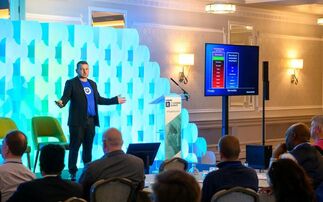The House of Commons Science and Technology Committee hears how regulators are allowing industry to 'sleepwalk into cyber risks'
A debate today in the House of Commons called for regulators to become more IT aware. Speaking at the Commons Science and Technology Committee meeting this morning, Professor Ross Anderson from ...
To continue reading this article...
Join Computing
- Unlimited access to real-time news, analysis and opinion from the technology industry
- Receive important and breaking news in our daily newsletter
- Be the first to hear about our events and awards programmes
- Join live member only interviews with IT leaders at the ‘IT Lounge’; your chance to ask your burning tech questions and have them answered
- Access to the Computing Delta hub providing market intelligence and research
- Receive our members-only newsletter with exclusive opinion pieces from senior IT Leaders






















